ILLUSTRATION CONTEST 2024
Column
A Conversation with
Two Pokémon TCG Official Illustrators
Akira Egawa and Narumi Sato
We invited Pokémon TCG Official Illustrators Akira Egawa and Narumi Sato to chat, hoping they could provide some valuable hints for all those who plan on applying to the Pokémon Trading Card Game Illustration Contest 2022.
Note: The following conversation happened via an online call.
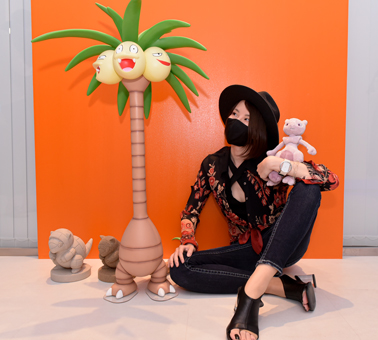
Akira Egawa
Illustrator / character designer. She has been drawing as an Official Pokémon Trading Card Game Illustrator since 2019. Taking advantage of her experience as a 3D modeler, she is active in various fields such as games, books, exhibitions, product development, and more. She is on a never-ending learning journey to find the answer to one question: what makes something “cool”? She has been playing Pokémon video game since Pokémon Gold, Pokémon Silver, and Pokémon Crystal.
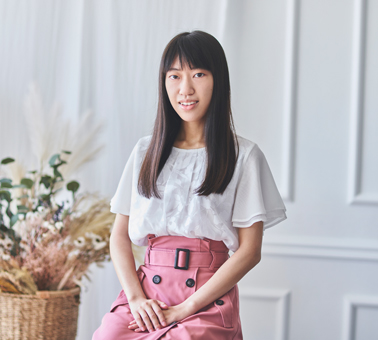
Narumi Sato
Illustrator. She won the second-place award in the first Pokémon Card Game Illustration Grand Prix.
In 2020, she became a Pokémon TCG Official Illustrator.
She draws Pokémon in unassuming, everyday scenes with a soft watercolor style. Her favorite Pokémon is Archeops.
What does “the daily life of Pokémon” mean to you?
Q: The subject for the Pokémon Trading Card Game Illustration Contest 2022 is “the daily life of Pokémon.” Tell us about some of the illustrations you have made for the Pokémon TCG that fit this subject, and how they manage to portray that specific Pokémon’s daily life.
Egawa: I’d like to talk about the Ninetales and Machoke illustrations I’ve made.
Now, the Pokédex says that Ninetales is said to live for a thousand years. And in the background, I drew a city. I imagined Ninetales seeing the place change over the span of a thousand years, with people settling there, creating a village, and slowly turning it into a city… I focused on the background town and the perspective of the artwork, because I thought that Ninetales’s daily life is defined by how it witnesses slow changes taking place over many years.
The background of Machoke’s illustration features a garage from a different, warmer region. I imagined Machoke living with the garage’s owner, helping out with fixing cars and other stuff, and driving thieves and bad guys away with its strong punches. The lives of Ninetales and Machoke intermingle with those of humans in very different ways, but no matter the distance, it always feels like the world of Pokémon is right next to ours… That’s how I try to portray their daily life.

“Ninetales“ illustrator: Akira Egawa
Included in Pokémon TCG: Sword & Shield—Rebel Clash

“Machoke“ illustrator: Akira Egawa
Included in Pokémon TCG: Champion’s Path
Sato: I try to draw illustrations that portray Pokémon while they are in the middle of something. As a result, many of my works end up capturing Pokémon’s daily lives. A recent illustration for which I particularly focused on this was the one for Glaceon V. I tried to think of what Glaceon’s daily life looks like. What does it eat for breakfast? What does it do during the day? Where does it sleep at night? I came up with a narrative that answered these questions and chose a scene out of it to illustrate. I let my imagination run wild, for example, thinking of how an Ice-type Pokémon like Glaceon would act in a cool, slightly mature way.

“Glaceon V“ illustrator: Narumi Sato
Included in Pokémon TCG: Sword & Shield—Evolving Skies
Egawa: This Glaceon is kind of, you know, charming! The way it looks at the flowers, for example, is very cool.
Sato: I’m flattered to hear that. I was thinking of how beautiful Glaceon is while I drew it, too. (Laughs)
Q: Sato, which one would you say is your favorite illustration from Egawa, and what about it caught your eye?
Sato: I particularly like the Ninetales illustration. It has a lot of depth to it, with the lights from the city in the background and the moon shining behind it. It really draws you in, and just looking at it is a pleasurable experience.
Q: “Pleasurable” is such a nice way to praise an illustration.
Egawa: The way in which the composition directs the viewer’s eye is very important to me, so I’m happy to hear that she felt that way about my art!
Q: And which of Sato’s works is your favorite, Egawa?
Egawa: Narrowing it down to just one wasn’t easy, but in the end, I decided that her Manaphy is the one I like best.
In all of Sato’s illustrations, including this Manaphy, I think that each Pokémon’s gaze is fantastic. They aren’t looking straight into the camera, so to speak, but it’s as if they were focusing on something else… I feel that gives them a rich inner life.
I love how Manaphy’s gaze looks. One of the old Pokédex entries for Manaphy said that it’s born on a cold seafloor, which makes you think that this Manaphy just came out of the dark turquoise sea on the top left corner and reached a warm coast along the sea for the first time in its life!
Also, the strong highlights in Manaphy’s eyes look as if they were a reflection from a bright, warm sun, and you can’t help but imagine the beaches, islands, and trees that it’s looking at. The way it stimulates my imagination is what I really love about this illustration.

“Manaphy“ illustrator: Narumi Sato
Included in Pokémon TCG: Shining Fates
Sato: I do pay a lot of attention to how I draw a Pokémon’s gaze. With Manaphy, my idea was to draw it as if it had just left the sea and was looking at new vistas for the first time.
Things to Take into Account When Creating Illustrations for the Pokémon Trading Card Game
Q: When drawing illustrations for the Pokémon TCG, you focus on making sure that they belong in the Pokémon world. What do you need to pay attention to in order to give that “Pokémon feel” to an illustration?
Egawa: I think of Pokémon as living creatures that are separate from both humans and animals. You can start from information such as the Pokédex entries and the look of each Pokémon, and fill in the blanks based on the theme of the illustration—in the case of this contest, that would be their daily life. Being imaginative within this mindset is essential.
Sato: That’s so deep! I pay particular attention to the Pokémon’s proportions, making sure that they feel right to me. Just as Egawa said, Pokémon are special and mysterious creatures, so I try not to focus too much on giving realistic shapes to their skeletons and muscles. I also try to stay true to the original sources while at the same time putting my own spin on each Pokémon, trying to give a sense of softness to their appearance. I always keep in mind this balance while I draw.
Q: How do you achieve originality when drawing Pokémon illustrations?
Egawa: I personally pour a lot of attention into giving Pokémon a detailed, uneven texture. I think of how it would feel to touch a Pokémon, making sure that the idea I’ve built in my mind doesn’t stray from the source. For example, I try to emphasize the fluffiness of a Pokémon’s fur or the firmness of their muscles. On the other hand, I don’t put too many details into the background, leaving a bit to the imagination and making the Pokémon pop!
Sato: I think that if you draw with a style you like, originality will naturally follow. Earlier, when I said that I want to draw Pokémon while they’re in the middle of something, I was referring to how I try to capture the soft and unassuming atmosphere of a Pokémon’s daily life. Layering a lot of colors will make a Pokémon look more three-dimensional, but this can make the illustration too weighty. I want to layer colors, of course, but I want to maintain a soft, lighthearted atmosphere. Trying to balance these two things is what eventually led me to using transparent watercolor. That is what I use to draw all my illustrations for the Pokémon TCG. I make sure that the materials I use are the right tools I need to express my art.
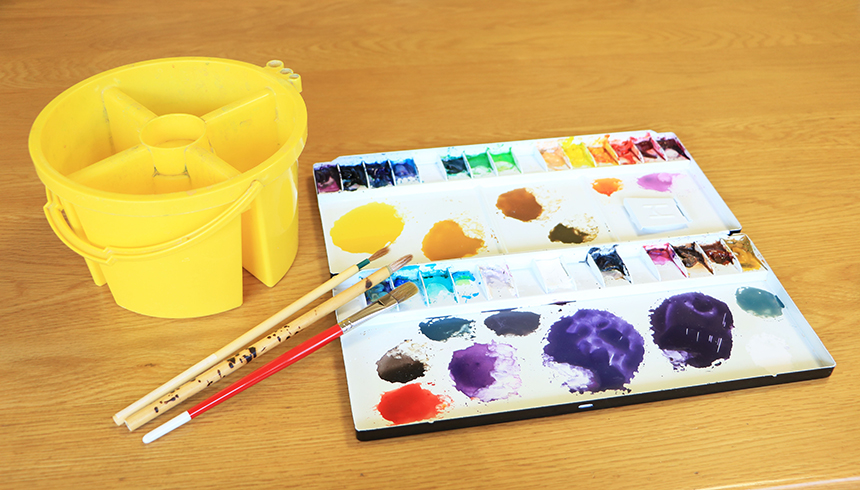
Q: Tell us about other things that you pay attention to when drawing a Pokémon TCG illustration.
Egawa: Something that I always take into account is whether the Pokémon I’m drawing actually look alive. I mentioned earlier that Pokémon are different from humans and animals, but they’re still living creatures, and as such, I think that they actually have blood in their veins. I’m just guessing. (Laughs) Regardless of whether or not they have blood, I still think it’s important to make it look like they have an inner warmth, a sort of fighting spirit to them.
Sato: I’ve been saying that I want to make my illustrations look natural a lot, but this really is my ultimate goal when drawing. Since the Pokémon franchise has been part of my life since I was a child, it’s easy for me to imagine Pokémon as if they were living in the same world as me. I try to draw them in a casual, unassuming way, avoiding having their gaze directed at the viewer. This is what I always take into account when making my illustrations.
Q: How do you try to improve yourself as an illustrator when drawing for the Pokémon TCG?
Egawa: I like to cultivate my eye and my artistic sensitivities by constantly engaging with all different kinds of designs and cultures—not only illustrations, but also photographs, text, music, food, conversations, and more… In this way, I can be ready to fulfill any kind of commission I get, whether it’s to draw something cute, something cool, or something with a very unique concept or theme. You can’t just look at one of your works and go, “This is absolute perfection.” That kind of training helps you keep a wide perspective. And psychological training is important, too!
Sato: I’m trying to improve my skills in drawing backgrounds, as I think they’re a very important part of Pokémon TCG illustrations. I’ve studied documents provided by Creatures on background details of the character, and read a lot of introductory books on background references, perspectives, and composition.
Sometimes, when I’m out for a walk and see a panorama that would make for a good background, I try to make a quick sketch or take a picture of it. I accumulate new ideas on a daily basis in this way.
Egawa: No wonder the sea in the Manaphy illustration looks so realistic! Did you go to the beach for inspiration?
Sato: I wanted to, but it wasn’t the right season, so I ended up watching YouTube videos of the sea on a loop. (Laughs)
Q: What do you think is the hardest part of creating a Pokémon TCG illustration?
Egawa: Each Pokémon has its own unique shape and colors. I have the bad habit of detailing the lighting and poses too much, which can end up making the illustration stray too much from the Pokémon’s original design. Restraining myself in that sense can be hard. Thankfully, since all Pokémon have a clear and well-defined design, you can make one realistic while also making it look like a Pokémon. Reading the reference material and finding the balance between the official designs and my own originality is a difficult but very rewarding challenge.
Right now, one of the hurdles I’m personally facing is finding new poses, compositions, and perspectives that make an illustration look better and cooler.
Sato: I can really sympathize with that. (Laughs) Sometimes, I’ll get an idea for a nice angle or composition, but it won’t fit within the frame of a Pokémon TCG card. So making sure that the composition actually fits the frame can be a challenge right from the start. Another difficult part is how I often end up drawing what feels comfortable to me. I make a conscious effort to make each Pokémon resemble the original design as much as possible, but after applying the fixes suggested by the art review team, it’s incredible how much more fitting they start looking. This always reminds me of how delicate the balance is behind Pokémon expressions.
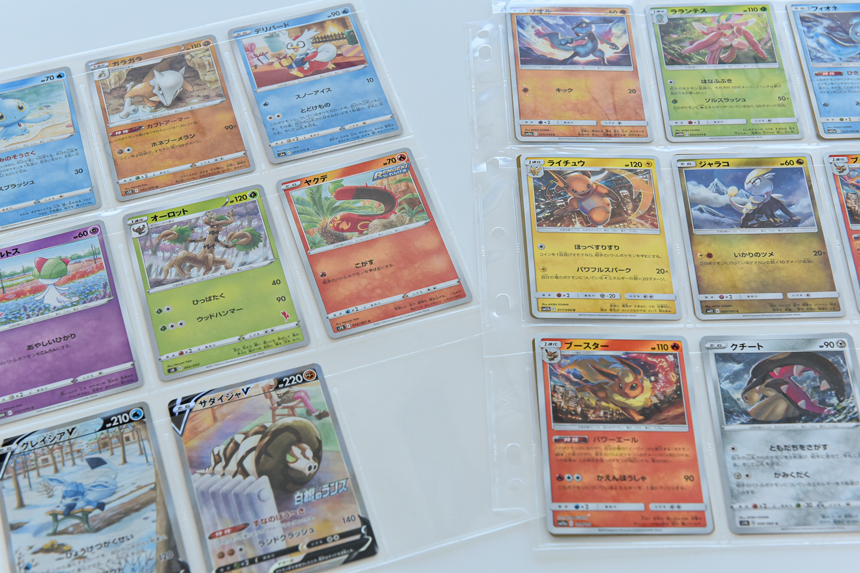
The Fun of Being Part of the Pokémon TCG as an Illustrator
Q: Tell us about the goals you want to achieve in the future regarding Pokémon TCG illustrations.
Egawa: I’m always trying to draw Pokémon that look cool and that make one want to fight alongside them. So my goal is to find new ways to make my illustrations cooler and cooler.
Sato: I’d also like to make my illustrations cooler and more impressive. My art is not very dynamic—I’d say it’s kind of static. What I’d like to achieve are illustrations that, while being static in showing a lighthearted moment in a Pokémon’s everyday life, manage to convey dynamism and strength. I also want to try illustrations that use tilted or bird’s-eye view perspectives, fish-eye lens effects, and so on.
Q: How does it feel to see your illustration printed onto an actual Pokémon TCG card?
Sato: Whenever I see that, I can barely believe that my work is on a real Pokémon TCG card. Taking the card into my hands makes me really emotional. I sometimes look at the card side by side with my original drawing, rejoicing in how they show the same thing, and I even put the cards in my notebook so I can always bring them with me, like a good-luck charm. (Laughs) I can’t wrap my head around the fact that a card with my illustration on it is available throughout the world. As a kid, I used to collect Pokémon TCG cards and the ones with my favorite illustrations. Now that I’m the one illustrating the cards, I feel a lot of gratitude for being able to do so and the drive to always deliver as well as I can. Just thinking that someone out there might be collecting the cards I’ve drawn like I used to do makes me incredibly happy.
Egawa: I feel the exact same way! Seeing the finished card is always moving… What makes me especially happy is seeing people online posting pictures of the cards I’ve drawn and saying that they look cool. When a card I’ve drawn is released outside of Japan, I sometimes see pictures of it in foreign supermarkets and card shops, kids in their living room playing with their new cards, or collectors taking selfies after buying a huge number of expansion packs. That makes me think that Pokémon is like a universal language that transcends all borders. And thinking that my illustrations are making someone happy in some distant part of the world I don’t even know truly gives me joy. I constantly feel honored and impressed that I’ve been given the opportunity to illustrate Pokémon TCG cards, and I feel the responsibility to keep on improving myself.
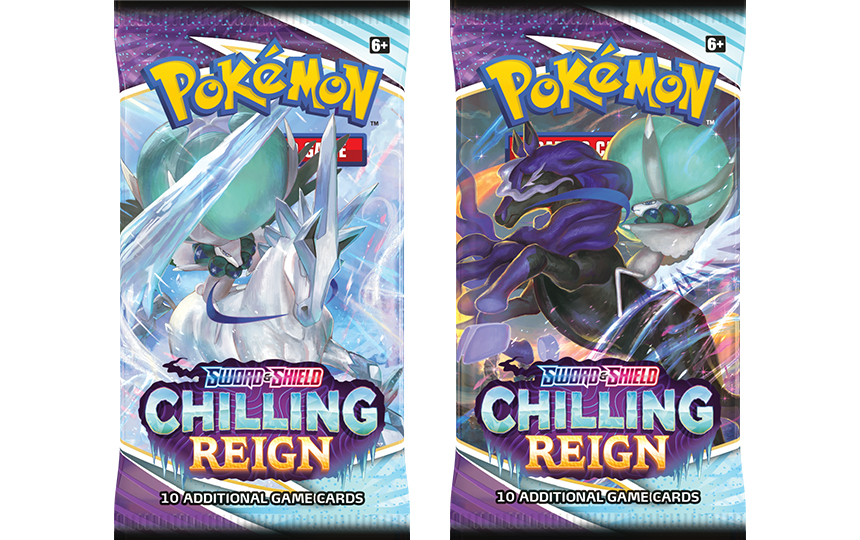
(Pokémon TCG: Sword & Shield—Chilling Reign)
Q: Please give a piece of advice to the Pokémon Trading Card Game Illustration Contest 2022 applicants.
Egawa: First of all, try to keep in mind what the illustration is going to look like when it is printed on an actual card. For example, it’s important to adjust the color and make sure that it doesn’t turn out too dark or too washed-out when put on paper.
Next, try to consider how the Pokémon and its background coexist, and whether they have a good synergy between them. The crucial thing is using the background to emphasize the subject Pokémon and to show what kind of place it’s living its daily life in.
Lastly, remember that each Pokémon has its own unique shape and colors. Look at them as if you were observing a real-life animal, and try to understand their colors and textures. While keeping all of this in mind, the most important thing is to impart your personality on the Pokémon… Make it your very own, unique creature!
Sato: Keep in mind the psychological aspect of drawing. The more you like Pokémon and feel like you want to illustrate one of them, the harder the process can feel. However, I want you to do your best without giving up in frustration. When I applied for the first Pokémon Card Game Illustration Grand Prix, I felt that I didn’t have enough time and that I wasn’t drawing as well as I possibly could. However, I’m really glad I didn’t give up just because I felt that way. Applying can feel like an accomplishment in itself, so try your best to complete your illustration and submit it. Since this contest’s theme is the daily life of Pokémon, you should also try to relax, imagine how Pokémon spend their day, and draw them in a fun, lively way.
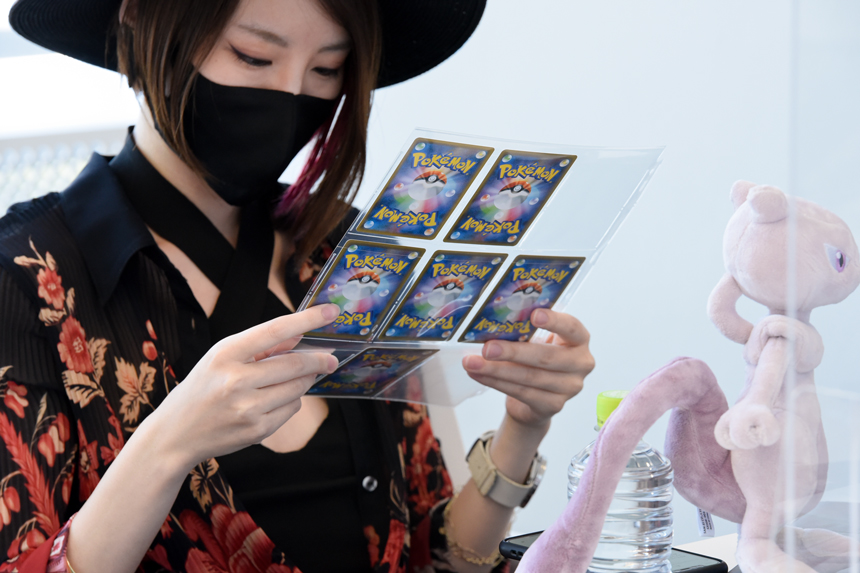

Composition and text: Shusuke Motomiya (One-up) Photos: Kayoko Yamamoto